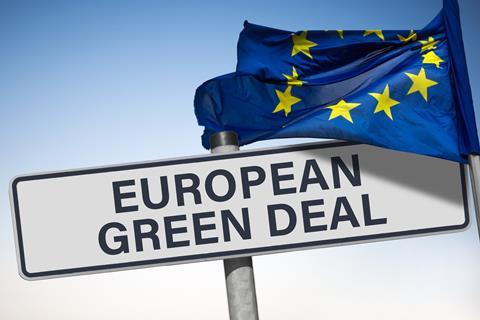There are significant opportunities for South African growers in the EU Green Deal, but they may also face formidable challenges
South African Deciduous Fruit industry body Hortgro has said it is important to recognise that achieving positive outcomes from the European Green Deal (GD) will require collaboration, investment, and proactive measures by farmers, policymakers and stakeholders.

Hortgro said that the potential challenges the country’s farmers faced were not absolute outcomes, and that the EU-South Africa trade relationship and cooperation on sustainable agriculture could help mitigate some of these risks and foster a more mutually beneficial approach.
On the positive side the Green Deal promoted sustainable practices and a transition to a low-carbon economy, Hortgro continued.
This could create an increased demand for sustainably produced agricultural products, which South African farmers could capitalise on by adopting environmentally friendly farming methods.
South African farmers could therefore align themselves with the EU’s sustainability goals and cater to the growing market demand for sustainable products.
Collaboration and knowledge exchange could result in funding opportunities, allowing the promotion of sustainable agriculture and climate resilience.
Hortgro also pointed out that the Green Deal’s focus on sustainability aligned with the growing global trend towards environmentally friendly products and may benefit the South African industry.
South African farmers could use this opportunity to diversify their export markets by targeting environmentally conscious consumers in the EU and other regions.
By meeting the EU’s stringent environmental standards, agricultural exports could potentially gain a competitive edge in international markets beyond Europe.
Climate change poses significant challenges to agricultural productivity and food security, with the Green Deal acknowledging the need for climate adaptation measures and investments.
South African farmers could benefit from the EU’s focus on climate resilience, including initiatives related to water management, soil conservation, and agroecological practices.
Hortgro noted that by adopting climate-smart agriculture techniques, South African farmers had the opportunity to enhance their resilience to climate change impact and improve long-term productivity.
There are risks however, such as market access challenges, with the European Green Deal emphasising sustainability and carbon neutrality, which could lead to stricter environmental standards and regulations for imported agricultural products.
The EU may also introduce additional trade barriers such as carbon border adjustment mechanisms (CBAM) to ensure that imported goods meet the same environmental standards as domestically produced goods.
The Green Deal also aimed to raise awareness about the environmental impact of agricultural practices, the industry body noted, which could potentially influence consumer preferences and reduce demand for South African agricultural exports, affecting farmers’ income and market opportunities.
Changes could also be made to agricultural subsidies, with a greater focus on sustainability and environmental practices.
This could potentially give European farmers a competitive advantage over South African farmers, who may not have access to similar financial support.



